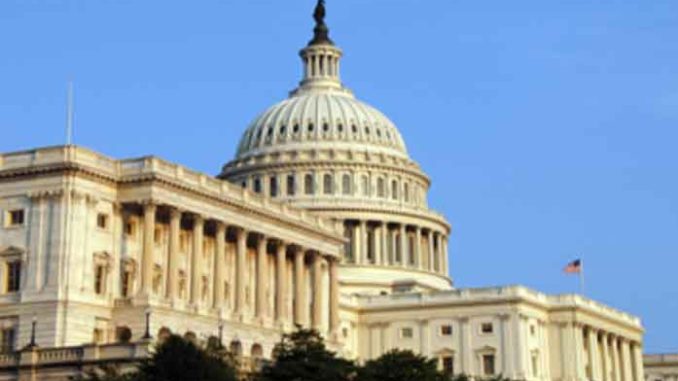
In the wake of social media giants pulling a video of doctors talking favorably about hydroxychloroquine and medical advances in the fight against COVID-19, Rep. Dr. Paul Gosar introduced H.R. 7808 Stop the Censorship Act of 2020.
According to Gosar, immunity from liability “has been abused by Big Tech to censor competition and lawful speech.” Section 230 of the Communications Decency Act (Section 230) affords Big Tech immunity from liability for third-party content. Section 230’s “Good Samaritan” provision provides immunity for the removal of users and content.
Gosar teased news of his bill in a tweet:
It’s simple: #BigTech is too powerful. They silence conservatives, while giving global terrorists a voice. In fact, they may even rig the 2020 election.
New legislation coming tomorrow… pic.twitter.com/fBM76CZW5d
— Rep. Paul Gosar, DDS (@RepGosar) July 28, 2020
On Monday, the Department of Commerce, as directed by President Donald J. Trump’s Executive Order on Preventing Online Censorship, filed a petition to clarify the scope of Section 230 of the 1996 Communications Decency Act. The petition requests that the Federal Communications Commission (FCC) clarify that Section 230 does not permit social media companies that alter or editorialize users’ speech to escape civil liability. The petition also requests that the FCC clarify when an online platform curates content in “good faith,” and requests transparency requirements on their moderation practices, similar to requirements imposed on broadband service providers under Title I of the Communications Act.
Gosar and his fellow conservatives note that political candidates, small businesses, medical professionals, pro-life advocates, journalists, authors, artists, comedians, supporters of President Trump, and many more are being censored by Google, Twitter, Facebook, Apple, Amazon, and other online platforms.
Gosar says his legislation revokes immunity for the removal of competition and lawful speech, empowers users to protect themselves from objectionable material, and aligns with focused reforms recently recommended by the Justice Department:
- Reform to Promote Open Discourse and Greater Transparency
Section 230 currently provides online platforms with immunity for the removal of anything they perceive to be “otherwise objectionable.” The vagueness of the term “otherwise objectionable” grants platforms immunity to remove any speech they don’t like, without any potential recourse for the user. Stop the Censorship Act revokes immunity for the removal of “otherwise objectionable” material and instead provides a new standard of immunity for content removal – “unlawful, or that promotes violence or terrorism.” This provision also incentivizes platforms to be more transparent and abide by their own terms of service. Current terms of service are largely irrelevant while immunity is extended for the removal of anything that platforms consider to be “otherwise objectionable”. Click here for more information from the Justice Department. - Reform to Promote Competition
Section 230 greatly contributed to the size and power of Big Tech. Online platforms have argued that the inclusion of the term “otherwise objectionable” creates immunity from antitrust claims (Enigma Sofware v. Malwarebytes). Stop the Censorship Act ensures that Section 230 does not extend immunity for antitrust claims aimed at promoting and preserving competition. Click here for more information from the Justice Department.
Instead of empowering Big Tech with immunity to remove anything they don’t like, says Gosar, his legislation extends protections to online platforms for “any action taken to provide users with the option to restrict access to any other material,” empowering users to choose content filter options.

